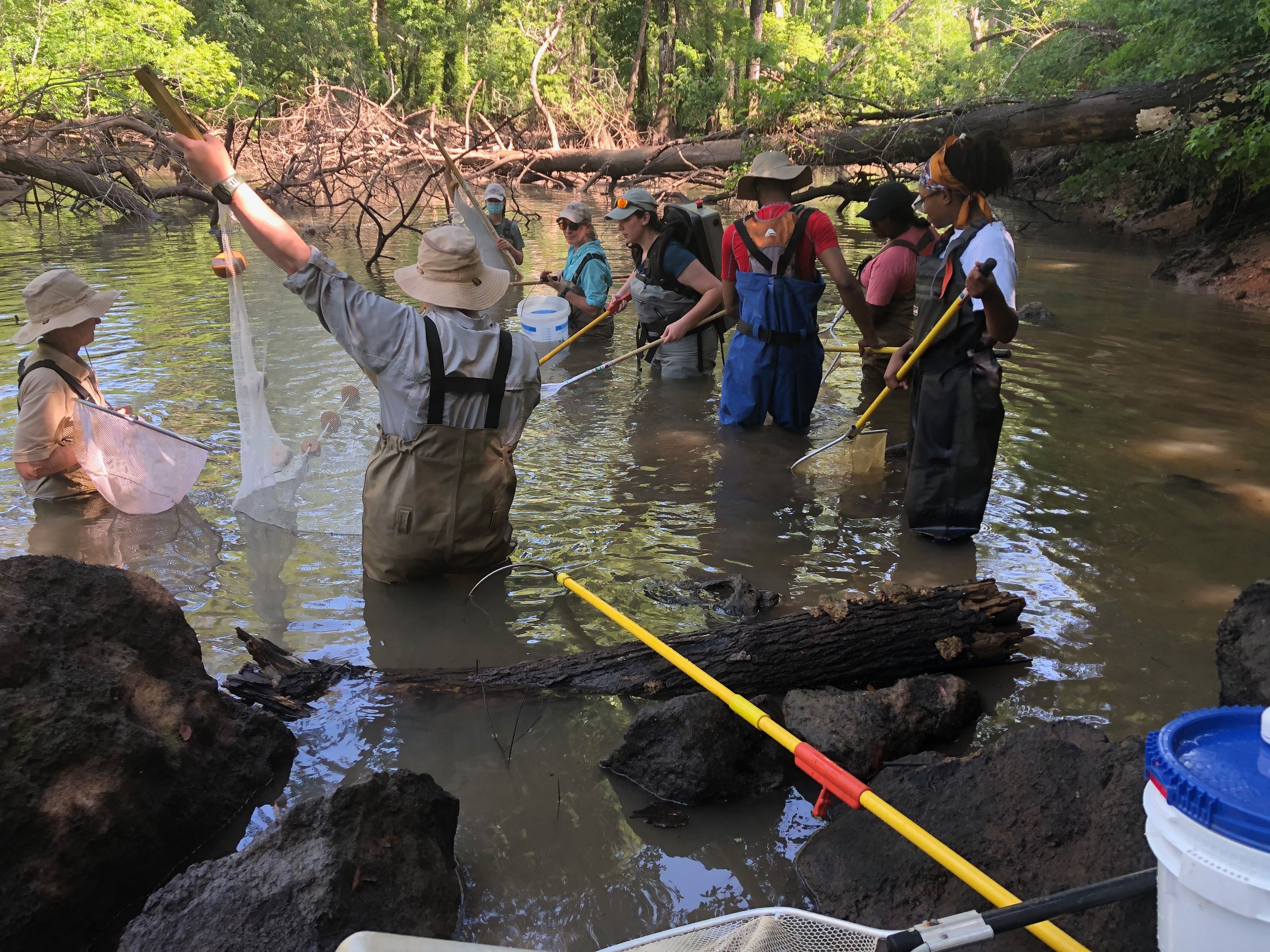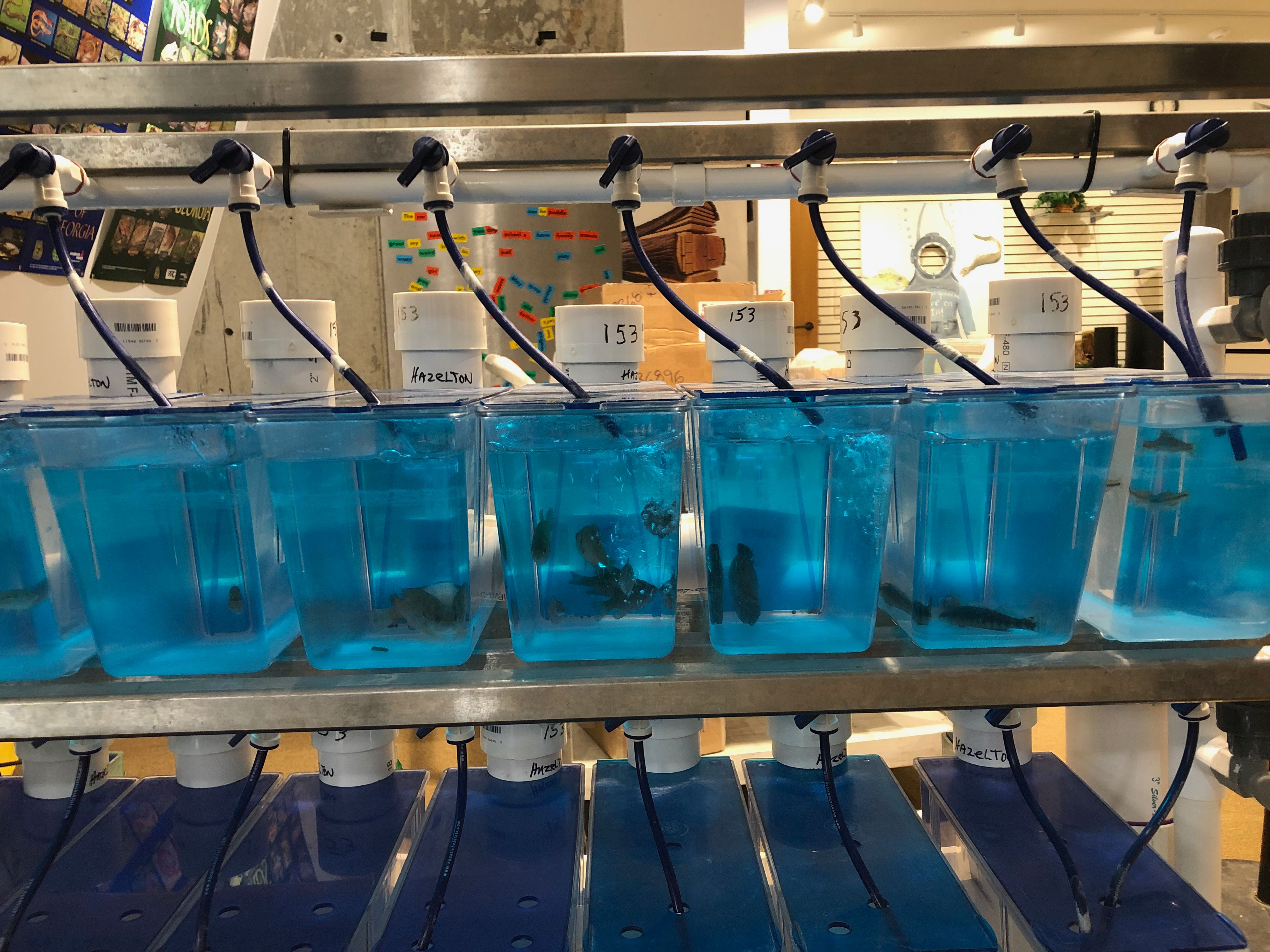Albany State University Joins Flint River Mussel Conservation Initiative
By: Rachel Lawrence
Albany State University (ASU) is participating in an initiative to research the early
life history, ecology and conservation of lower Flint River mussels. Partners include
the University of Georgia (UGA), the Flint RiverQuarium, the Jones Center at Ichauway,
U.S. Fish and Wildlife Service, and the Georgia Department of Natural Resources Wildlife
Resources Division. 
“This research will provide students with extensive real-world research experience from planning to conducting experiments that impact them and their communities, and provide them with guidance in analyzing, interpreting, and publishing the results,” said ASU Associate Professor of Biology, Dr. Shayla Williams.
The objectives of the pilot research project include providing training opportunities for students, providing outreach and education, and advancing the understanding of host fish-mussel relationships in the river.
Participants will collect fish species near high density mussel sites, bring the fish back to the lab for holding and mussel drop-offs, and use genetic barcoding and bioinformatics to identify mussels.
“Freshwater mussels are a critical component of our rivers in Georgia and North America. They are ecosystem engineers that clean our water and provide habitat for fishes and other aquatic animals. Sadly, freshwater mussels are declining for reasons such as water pollution, historic overfishing, and loss of habitat,” said Assistant Professor of UGA Warnell School of Forestry and Natural Resources. Dr. Peter Hazelton.
“The state of Georgia is ranked the third highest with numbers of mussel species,
and the Flint River is one of the best mussel watersheds in the state. Research conducted
by Albany State, University of Georgia, and the Flint RiverQuarium provide important
information for conservation biologists trying to preserve and restore our natural
heritage,” Hazelton added. 
ASU biology students involved in the project include Roudnes Louissaint, Fareeha Mohammed, Joseph Stoklosa, and Daisha Yancey.
“Here at the Flint RiverQuarium, the public will be able to interact and engage with researchers, allowing us to provide a unique first-hand learning experience about the role science can play in the health of an ecosystem,” said Director of Education, Chehaw Alliance Jackie Entz Shores.
